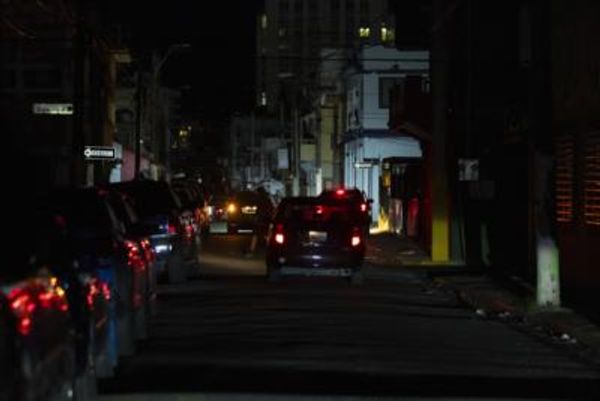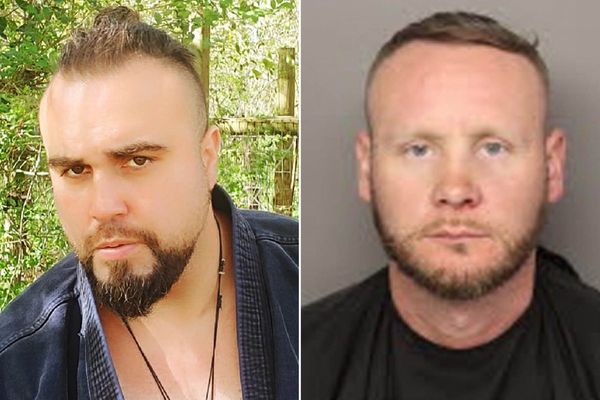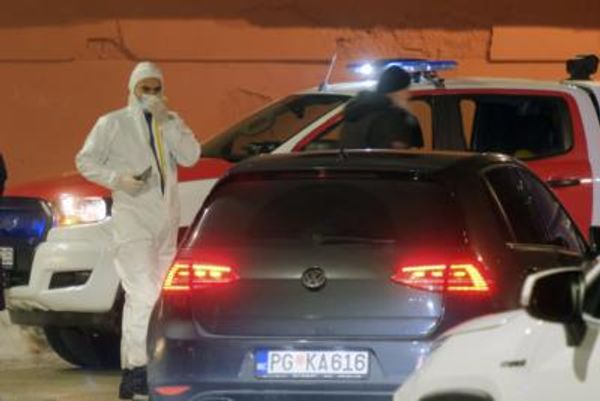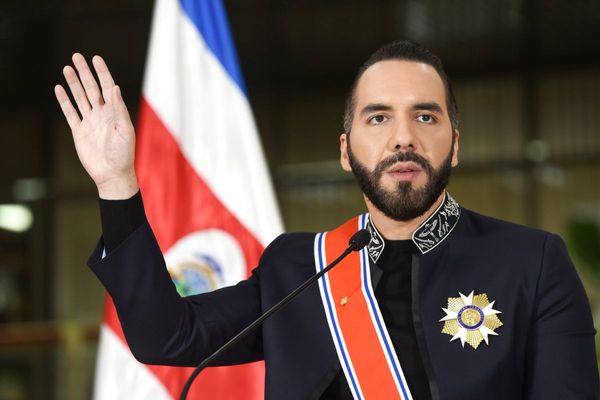
That Marcus Mumford wants people to pay attention to what he is singing is made clear by the two Mumford & Sons songs he chooses to open his show: Awake My Soul and The Cave. It is just him and an acoustic guitar for that pair, so the lyrics can be heard. “And now my heart stumbles on things I don’t know / My weakness I feel I must finally show,” he sings in the former; “I’ll find strength in pain / And I will change my ways,” he sings in the latter, which also offers the description of someone as “you cannibal”.
That’s surely no accident, given it is followed immediately by Cannibal, beginning a complete runthrough of his extraordinary solo album, Self-Titled. Those two Mumford & Sons songs foreshadow what it is to come – songs about confronting pain and the past, in this case the legacy of childhood sexual abuse. Not that everyone seems to have got the memo: partway through Cannibal, there’s a peal of raucous laughter from the back of the room, even as Mumford is singing of still being able to taste his abuser. The shushing that follows almost drowns out the sound from the stage.
Even the lighting sends a message that we are meant to listen closely. Though there is usually a spotlight on Mumford, it is from behind, so his face is often in shadow. Yes, he is the main man, the one we’re meant to look at, but it’s as if he is being kept veiled so we will pay attention. And, by and large, people do, though him being a big star means there are people here who are perhaps just curious and don’t realise the subject matter means chatting loudly is a little inappropriate.
As if to reassure the crowd that they’re not in for the musical equivalent of a misery memoir, Mumford is on jolly form, joking that his American backing band will get the chance to experience England during a World Cup, a unifying phenomenon that, he notes, means even people from Yorkshire are being kind to him. Oddly, later on he claims to have been at a Neil Young show where Young played his new album in its entirety, then, when heckled to play something the crowd had heard before, played the same album in its entirety again. Odd, because while that is something Young did, he did it in 1973, 14 years before Mumford was born.
The meat of the show isn’t always a complete success. The drums are so high in the mix that on the rockier tracks, the kick drum overwhelms everything: where Self-Titled was full of detail, here the colouring is lost in a muddy swamp of noise. That mix means Grace – on record, a fabulous, Tom Petty-esque piece of lazy drivetime rock – becomes a bit of a slog, as does Better Angels. The keyboards are all but inaudible, Mumford’s own guitar feels lost, though his voice – and those lyrics – remains clear and distinct.
The less there is going on in the song, the better it fares. Only Child is barely there instrumentally – the merest dab of acoustic guitar, and piano for colour – and it is gorgeous. Mumford’s facility with a tune is apparent from the fact that even though his voice has to do all the melodic heavy lifting, it’s instantly memorable. The same goes for the album’s closing track, the devastating How – his partial forgiveness of his abuser – even if it is hugely tempting to sing Foreigner’s I Want to Know What Love Is to its verses.
Mumford’s encore doesn’t give a big hit of Mumford & Sons. It begins with a solo rendition of Taylor Swift’s Cowboy Like Me, on which Mumford sang backing vocals, followed by a pair from The New Basement Tapes all-star album. Only at the very end comes I Will Wait, but the band are dismissed, and it is played slowly and gracefully with no chance to hoedown.
It’s a brave show, and Mumford is right to highlight Self-Titled – it’s one of the year’s very best albums – but it doesn’t quite work. A seated venue might have suited it better; a better mix certainly would have. But these are songs that will endure.







